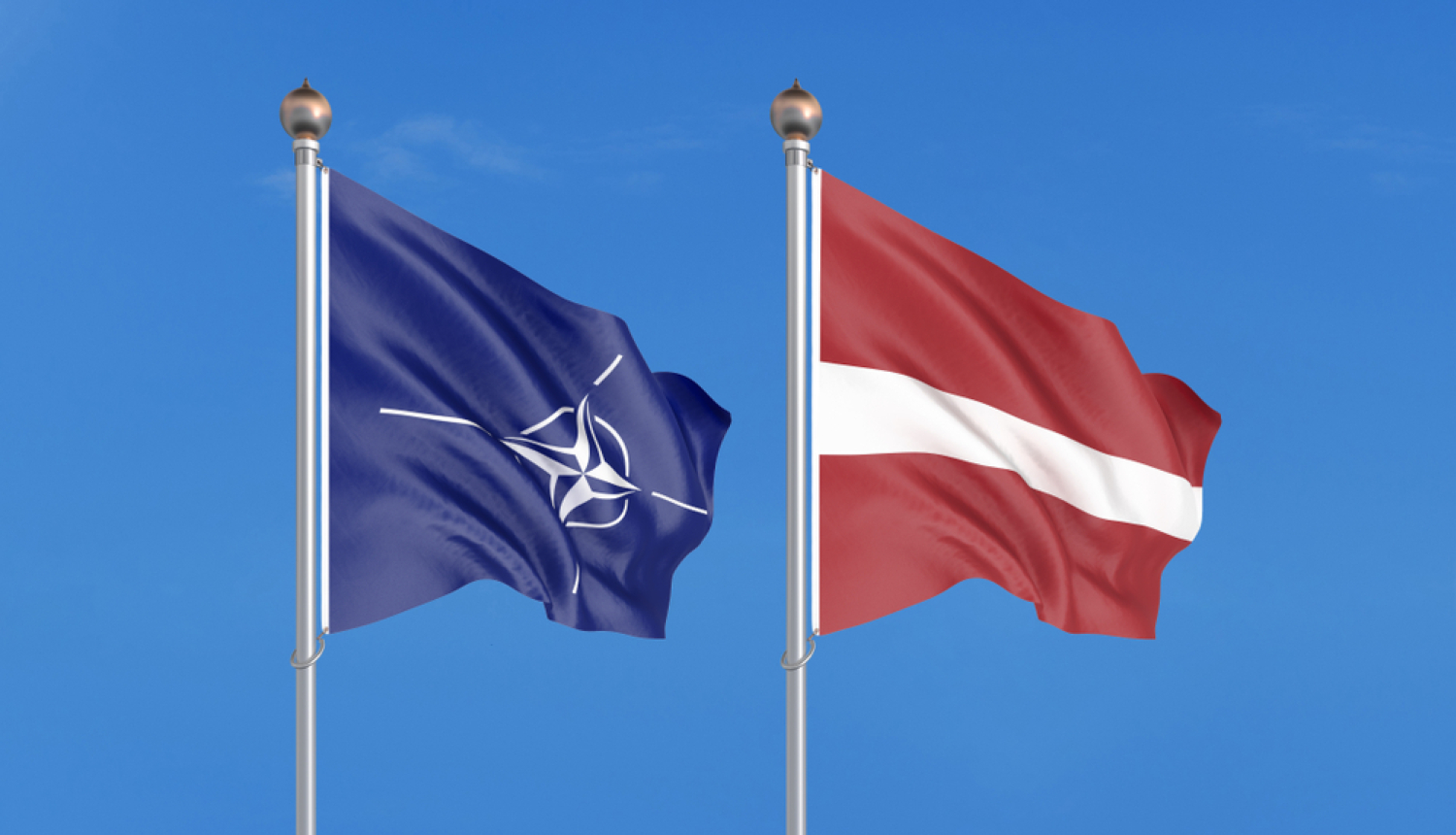This year sees 18 years since Latvia became a member state of the world’s most powerful military alliance – the North Atlantic Treaty Organisation (NATO). Latvia’s membership of NATO is one of key achievements in the foreign policy of the restored Republic of Latvia, which offers security guarantees and contributes to the strengthening of military capabilities of our country and its development.
NATO’s role in the strengthening of security and stability is indispensable in view of Russia’s aggressive foreign policy and the invasion of Ukraine. A strong national defence posture and a united and strong presence by NATO is vital for stopping Russia’s aggression in Europe, the Minister of Foreign Affairs of Latvia, Edgars Rinkēvičs, underlined on the occasion of the 18th anniversary of Latvia’s accession to NATO.
Background information
Latvia’s path to NATO began in 1991, when the Alliance established a forum for dialogue and cooperation with potential partners, the North Atlantic Cooperation Council (NACC), and Latvia became one of its members. Some years later, in 1995, the Saeima voted to approve the main directions of Latvia’s foreign policy, and the integration of Latvia into the European Union and NATO was set as the principal task.
The NATO Madrid Summit in 1997 passed a pivotal decision to expand eastward, and in Washington, DC, on 29 March 2004, Latvia together with other aspiring members submitted its instruments of accession to NATO thereby officially joining the Alliance. Later that year, NATO began its Baltic Air Policing mission to ensure safe airspace over and near the Baltic States.
For the first time in 2006 Riga hosted the Summit of NATO Heads of State and Government, with the main topics on its agenda being the mission in Afghanistan, enlargement of the Alliance, and energy security.
In response to the illegal annexation of Crimea by Russia, Allied leaders decided at the NATO Warsaw Summit in 2016 to deploy a multinational battle group to the Baltic States and Poland. The leadership of NATO’s enhanced Forward Presence battle group in Latvia was assumed by Canada.
On 30 November and 1 December 2022, at the Meeting of NATO Ministers of Foreign Affairs in Riga, ministerial-level discussions were launched on NATO’s next Strategic Concept and views were exchanged on NATO’s position vis-à-vis Russia.



